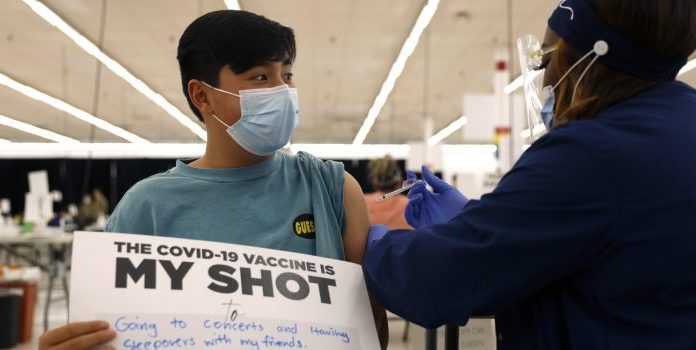Pfizer has updated a study of its COVID-19 vaccine in children between the ages of 6 months and 5 years to include a third dose, according to a Dec. 17 press release.
Pfizer said the study was updated after an analysis of data suggested that “people vaccinated with three doses of a COVID-19 vaccine may have a higher degree of protection” from both the delta and omicron variants.
So far the study has yielded no increased effectiveness in the “immunogenicity” of the vaccine in toddlers, but Pfizer still hopes “to submit data to regulators to support an Emergency Use Authorization (EUA) for children 6 months to under 5 years of age in the first half of 2022.”
This represents a change to the timetable that COVID czar Anthony Fauci set in November, telling Insider that he expected a vaccine for babies and preschoolers would likely be available “in the first quarter of 2022.”
The question remains, however, why Pfizer is so urgently experimenting on children when they face almost no risk of serious illness or death from COVID.
As Vox, among others, have reported, “less than 2 percent of children known to be infected by the coronavirus are hospitalized, and less than 0.03 percent of those infected die.”
At Conservative Playlist, Dr. Joseph Mercado argued that only “financial gain” can explain Pfizer’s quest for a third dose.
“If the two-dose regimen makes the changes to the immune system in the 6- to 24-months group and 5- to 12-year age groups that the company is looking for, why move to a three-dose regimen for them if not for financial gain?” Mercado wrote.
In an Earnings Report published in November, Pfizer reported that it expected to bring in more than $80 billion in revenue in fiscal year 2021, $36 billion of which it expected to come from vaccine sales.
It is no wonder Pfizer CEO Albert Bourla was named CNN Business’ CEO of the Year.
“We are doing everything we can to find ourselves on the right [side] of history,” Bourla told CNN.

